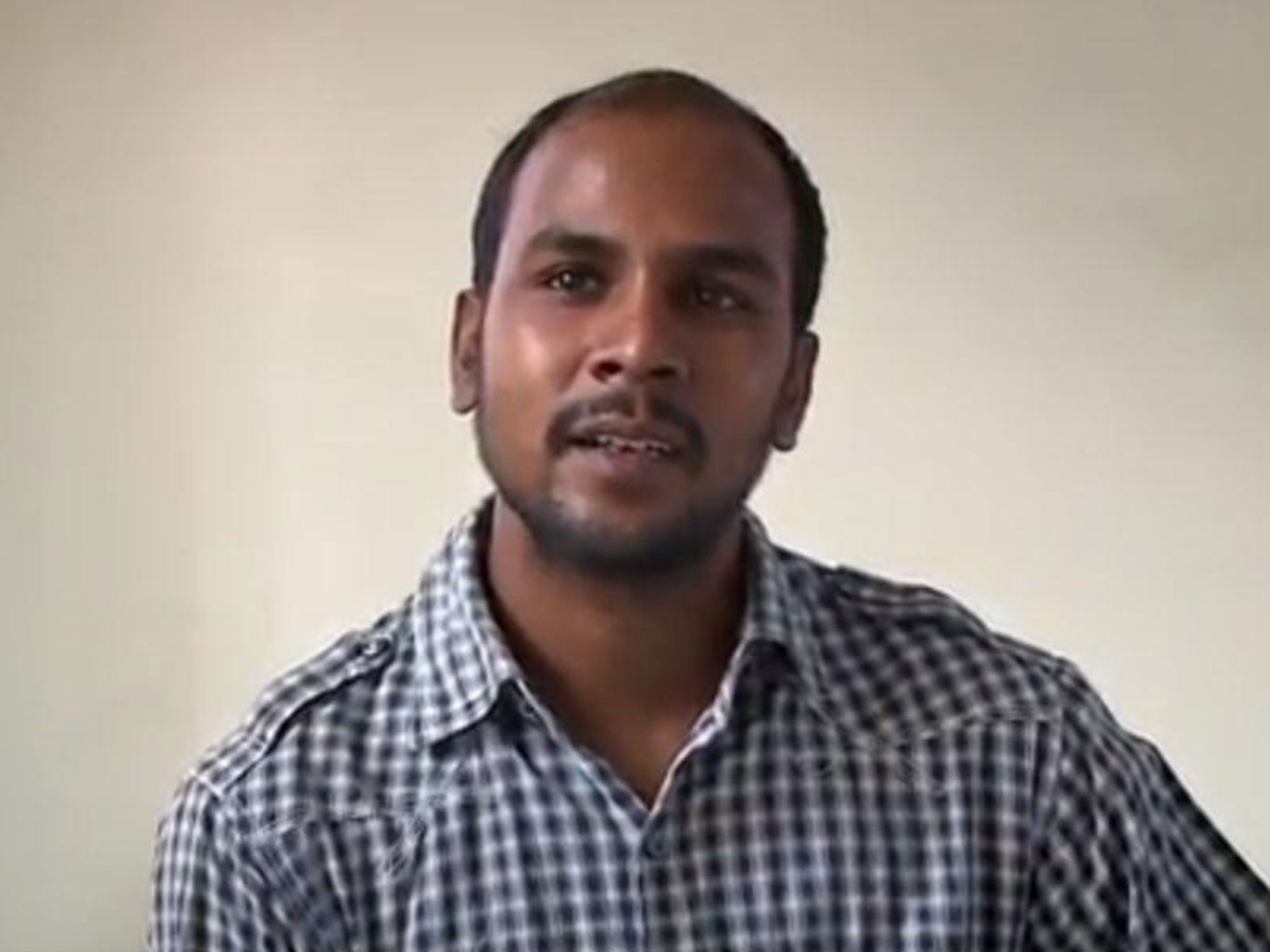Delhi bus rapist blames dead victim for attack because 'girls are responsible for rape'
'She should just be silent and allow the rape': Mukesh Singh claimed Jyoti would not have died if she hadn't fought her attackers

One of the men convicted of gang raping a woman on a bus in Delhi has blamed his victim for the fatal attack, saying “girls are far more responsible for rape” than men.
The 23-year-old physiotherapy student died of horrific injuries two weeks after being assaulted by six men as she travelled home from the cinema with a male friend.
“A decent girl won't roam around at nine o'clock at night,” he said.
“A girl is far more responsible for rape than a boy. Boys and girls are not equal.
“Housework and housekeeping is for girls, not roaming in discos and bars at night doing wrong things, wearing wrong clothes.
“About 20 per cent of girls are good.”
Police said his victim, known as “Jyoti”, meaning “flame”, was found with multiple wounds and had also been raped with metal bars, causing catastrophic internal injuries.
She and her friend were thrown from the moving bus and 13 days of extensive medical treatment could not save her.
Jyoti’s death sparked a wave of unprecedented protests across India and the world and five of the perpetrators were sentenced to death.
The Indian public also gave her other names, including Jagruti (“awareness”), Amanat (“treasure”), Nirbhaya (“fearless one”).
BBC Four is airing a documentary on the rape and its impact on 8 March.
Speaking to interviewers for the Storyville programme, to be aired on International Women’s Day, Singh is seen suggesting the rape and beatings were to teach Jyoti and her friend a lesson.
He criticised her for resisting her attackers, saying: “When being raped, she shouldn't fight back.
“She should just be silent and allow the rape. Then they'd have dropped her off after doing her and only hit the boy.”
Her male friend was badly beaten and suffered broken limbs but survived to testify against Singh and the five other men at their trial.
Singh was sentenced to death by hanging for Jyoti’s rape and murder, along with four others.
His brother, Ram Singh, was found dead in his jail cell in March 2013 and Mukesh and the remaining three are currently on appeal with their sentences put on hold.
Their 17-year-old accomplice was also convicted of rape and murder but sentenced to three years in a reform facility according to Indian sentencing laws for juvenile offenders.
Singh claimed that executing him and the other convicted rapists will endanger future rape victims.
“Now when they rape, they won't leave the girl like we did - they will kill her,” he said.
In pictures: India in shock after teenage girls 'gang raped and hanged'
Show all 13“Before, they would rape and say, ‘Leave her, she won't tell anyone.’ Now when they rape, especially the criminal types, they will just kill the girl.”
Two lawyers who defended the rapists in court were also interviewed for the documentary.
AP Singh had previously said that if his sister or daughter “disgraced herself” by being seen with a man, he would “to my farmhouse, and in front of my entire family, I would put petrol on her and set her alight”.
Another defence lawyer in the case, ML Sharma, said: “In our society, we never allow our girls to come out from the house after 6.30 or 7.30 or 8.30 in the evening with any unknown person.
“You are talking about man and woman as friends. Sorry, that doesn't have any place in our society. We have the best culture. In our culture, there is no place for a woman.”
It was a double standard of which Jyoti was well aware. Her former friend and tutor told the BBC that she said India’s biggest problem was its “mentality” enforcing perceived differences between girls and boys from birth.
Her murder increased scrutiny of the country’s staggering levels of violence against women and provoked promised legal reforms.
Jyoti was working as a physiotherapy intern when she was murdered and her parents had sold their ancestral lands to pay for her training.
Speaking on the documentary, her father said her death “lit a torch” for women’s rights.
Her mother added: “Whenever there's a crime, the girl is blamed, ‘She should not go out. She shouldn't roam around so late or wear such clothes.' It's the boys who should be accused and asked why they do this.”
Storyville – India's Daughter, will air on BBC Four Sunday 8 March at 10pm
Subscribe to Independent Premium to bookmark this article
Want to bookmark your favourite articles and stories to read or reference later? Start your Independent Premium subscription today.

Join our commenting forum
Join thought-provoking conversations, follow other Independent readers and see their replies